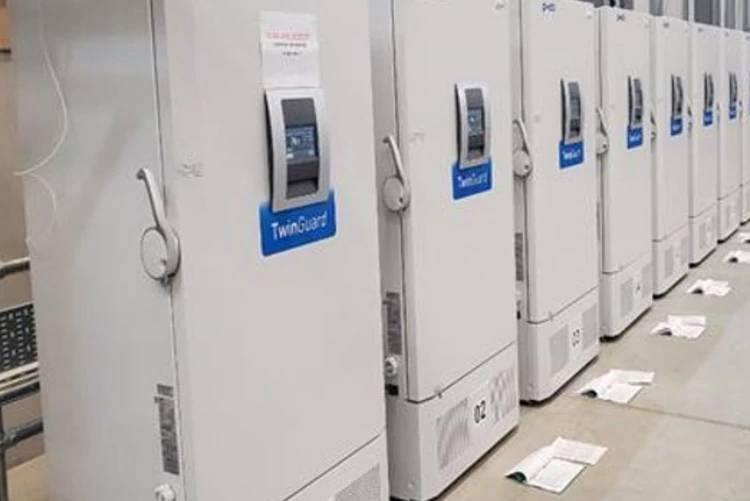Britain is on the eve of launching a COVID-19 vaccination campaign.
Staffers with the nation’s National Health Service, nursing home residents and their caregivers on Tuesday will begin to receive the first of two doses of a vaccine jointly developed by U.S.-based pharmaceutical giant Pfizer and Germany’s BioNTech.
The initiative will start nearly a week after the government’s medical regulatory agency granted emergency approval for the vaccine, making Britain the first western nation ready to begin mass inoculations. The approval came weeks after Pfizer announced the vaccine had been shown to be more than 90% effective after its final clinical trial.
Britain received 800,000 doses of the Pfizer/BioNTech vaccine Sunday, the first of a total of 40 million it purchased from Pfizer. Great Britain has a population of more than 66 million people. Delivery of the vaccine is complicated by the fact that it must be stored in super-cold refrigerators at temperatures below 70 degrees Celsius.
Canada announced Monday it would receive its first doses of the same vaccine by the end of December.
Canadian Prime Minister Justin Trudeau said Monday that up to 249,000 doses of the vaccine would arrive this month, and 3 million are slated to be delivered early next year. Canada has a population of more than 37 million people.
In a separate development, the Serum Institute of India has applied for emergency use of a COVID-19 vaccine under development by British pharmaceutical giant AstraZeneca in collaboration with the University of Oxford. Serum, the world’s largest vaccine manufacturer, is leaning heavily toward the AstraZeneca/Oxford vaccine because it can be stored at 2 to 8 degrees Celsius, as opposed to the super-cold requirements of the Pfizer/BioNTech vaccine.
Indonesian President Joko Widodo announced Sunday the country has received a shipment of a coronavirus vaccine developed by China’s Sinovac biotechnology company. The vaccine is still undergoing testing in Indonesia, where the government is making final preparations for an initiative to inoculate as many as 270 million people.
But as many countries prepare to inoculate their populations, the World Health Organization (WHO) has warned against mandatory vaccinations.
While WHO officials are urging governments to persuade their citizens to get vaccinated, public health experts warn that a mandate may not be the right approach.
"I think all of us who work in public health would rather avoid that as a means for getting people vaccinated,” WHO’s emergencies director Michael Ryan told a virtual press conference Monday.
United States
In the United States, health regulators will meet Thursday to consider whether to authorize emergency use of the Pfizer/BioNTech vaccine, followed by a second meeting a week later to discuss another vaccine under development by U.S.-based biotechnology company Moderna.
Health and Human Services Secretary Alex Azar told Fox News Sunday that if a panel of experts at the U.S. Food and Drug Administration approves the Pfizer vaccine, “within hours (health workers) can be vaccinating” patients.
Customer wearing mask walks out of Walgreen's pharmacy store and past sign advising that COVID-19 vaccines are not available.
Some Americans Worry About Safety of Coronavirus Vaccine
A significant number of Americans express concern over accelerated timeline in developing COVID inoculations
U.S. authorities have decided that medical and emergency workers, as well as employees and residents of nursing homes, are at the highest risk of contracting the infection and will be first in line to be inoculated. Azar said that 30 million to 40 million doses of the vaccine will be available by the end of the year, with millions more doses to be manufactured in the first half of 2021.
The world has more than 67.4 million total COVID-19 cases, including more than 1.5 million deaths. The United States leads the world in both categories, with 14.9 million total cases and more than 283,000 deaths, according to Johns Hopkins University.
(VOA)

